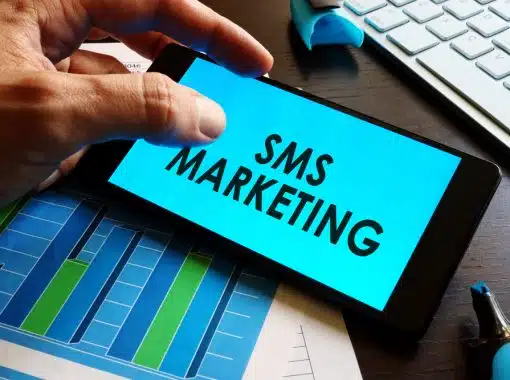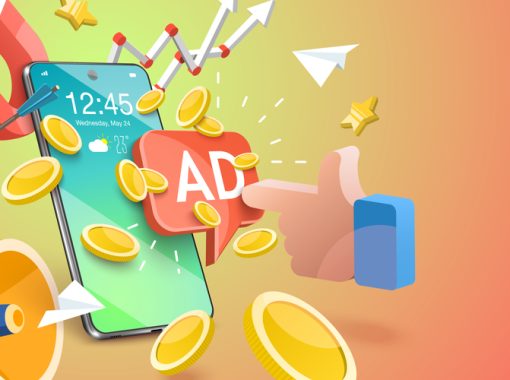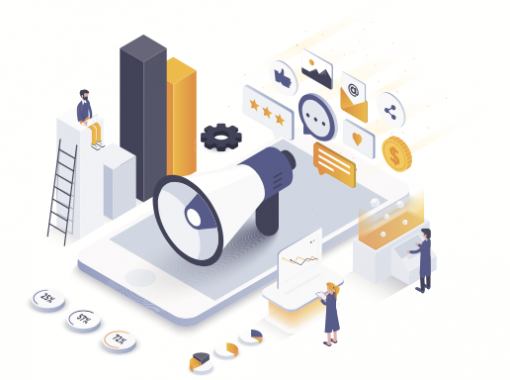
We lead busy lives. Between our work obligations, our family, and our passions, there’s only so much time in the day to fit it all in.
We’re constantly on the hunt for the next big thing that will make our lives a little easier, allowing us to spend more time doing the things we love. If we can save even a few seconds in our day, we’ll take advantage of the opportunity.
This principle applies to marketing, too! We’re always looking for tools and platforms to help us streamline and expedite our processes, from campaign planning to reporting.
With the introduction and adoption of artificial intelligence, our lives — both personal and professional — are more efficient than ever before. From perfectly curated song suggestions on Spotify or Apple Music to predicted Google search recommendations, artificial intelligence tools are constantly working to make our lives a bit easier.
As a result, artificial intelligence has rapidly become the biggest marketing tool for companies of all sizes.
What is Artificial Intelligence?
By definition, artificial intelligence (AI) is the concept of developing computer programs to perform tasks that traditionally require the function of human intelligence, such as decision-making, translation, or data recognition.
As individuals, we use artificial intelligence daily — whether we know it or not. Common examples of AI include:
- Using Face ID to unlock our phones
- Voice recognition assistants like Amazon Alexa or Google Home
- Curated social media feeds based on our activity
- Using an app to monitor and report traffic for commuting
- Spam filters in your email platform
In banking, every time you cash a mobile check with the bank’s app, that’s artificial intelligence in action. Healthcare is leveraging artificial intelligence to better diagnose patients and reduce the risk of human error. And, in manufacturing, companies are taking advantage of artificial intelligence to improve overall productivity and output.
4 Key Advantages of Using Artificial Intelligence
Artificial intelligence may seem scary, but in reality, these tools provide exceptional value to our everyday lives (and to our marketing goals, as well).
Among the many advantages of AI are:
Convenience
Think of how much time we spend searching for information each day. What if that time could be cut in half? Wouldn’t you take advantage of that opportunity?
Artificial intelligence tools are meant to replicate and improve human tasks or thought processes. However, humans are typically restricted by mental capacity, work hours, and other constraints while machines aren’t!
This means AI tools are conveniently available 24/7 for whatever you need. The sheer convenience of these tools is enough to make any busy marketer leap at the chance to put them into action.
Reduction in Human Error
We’re human. We make mistakes. But, mistakes can be costly, especially in high-stakes industries such as healthcare organizations or the financial sector.
Artificial intelligence tools help reduce the risk of errors through rigorous quality checks and technical algorithms to ensure accuracy. For marketers, this can mean guaranteeing that an ad budget isn’t overspent or scheduling a campaign to end at a specific time.
Improved Productivity & Efficiency
With the added convenience and reduction in human error, artificial intelligence helps us become more productive and efficient marketers (and individuals!)
Instead of dealing with extra tasks, inefficient processes, or endless mistakes, you can focus your energy on the important projects, knowing the artificial intelligence tools are always doing their job.
Decision Making
Every marketer understands how complicated and time-consuming making a campaign or strategy decision can be, especially if lacking the proper data or resources.
Artificial intelligence tools help marketers identify the data they need to make an informed decision and deliver it instantly. Additionally, these tools can be programmed to review the requested data and provide suggestions to aid in the decision-making process.
How Marketers are Using Artificial Intelligence & Why
In addition to improving employee productivity and decreasing the chance of mistakes, marketers are using artificial intelligence throughout their entire department. From expertly curating social media content with the touch of a button to importing data from various sources, AI tools are a necessity for marketers today.
Make Better Marketing Campaign and Strategy Decisions
Marketers notoriously use both qualitative and quantitative data to inform their campaign or strategy. But, sometimes client needs or cloudy judgment can get in the way of making a sound decision.
Artificial intelligence tools can be programmed to help marketers make all sorts of related decisions, such as:
- How much to spend on media buying opportunities.
- Which media buying opportunities to invest in.
- What direction to go with a social media strategy.
- Content topic suggestions for email marketing subscribers.
- Hashtag recommendations.
With ample information at their disposal plus curated recommendations, marketers are primed to make the best decisions for their respective goals.
Personalized Marketing Opportunities Using AI
Artificial intelligence tools shine when used in conjunction with personalized marketing strategies.
Personalized marketing refers to the process of providing individual content, brand, and shopping experiences for each customer or website visitor based on past activity or personal information. According to a SmarterHQ report, 92% of marketers reported using personalization techniques in their marketing. Yet 55% of those marketers feel they do not have adequate customer data to implement such effective personalization tactics.
That’s where AI comes in!
Marketers can use artificial intelligence tools to offer unparalleled personalized experiences across platforms, and decrease their abandoned cart and churn rate in the process.
Common uses of personalized marketing and artificial intelligence include:
- Recommended blog content based on previous activity.
- Individualized email marketing content pulled from a library.
- Third-party content curation tools.
- Suggested products when shopping online.
Personalized marketing tactics have been proven to provide brands with a wealth of benefits, but most importantly: improved customer satisfaction.
Streamline Customer Communication with Chatbots
Chatbots offer a variety of advantages for businesses and are powered entirely by artificial intelligence!
By programming a chatbot to communicate with your customers online, you effectively improve the customer experience by providing faster and more accurate answers than if a human was responsible for the conversation.
Marketers can program chatbots to accomplish a variety of tasks, including:
- Scheduling a meeting with a sales representative.
- Directing customers to specific pieces of content or information.
- Sending emails to clients or potential customers.
- Helping website visitors subscribe to a newsletter.
- Recommending specific products based on customer queries.
- Answer questions about the company, products, and services.
And, with chatbots being able to handle social media conversations as well, marketers can sit back knowing their customer concerns are being handled properly.
Thanks to chatbots, customers are navigating the purchase process with ease and finding the information they need faster than ever. Once again, contributing to an improved customer experience!
Accurate & Efficient Reporting
Marketers thrive on data. But compiling all the information you need can take forever. And, this can lead to human errors due to the repetitive nature of the tasks.
Eliminate boring and time-consuming tasks by using artificial intelligence to compile reports using information from various data sources. Artificial intelligence tools are also excellent for speeding up data input tasks.
Artificial intelligence tools can help with data projections as well. By reviewing and analyzing the curated information.—.and continuously learning from the various data trends.—.AI programs can make recommendations or future projections. Marketers can then use these projections to influence decisions, project directions, and other departmental considerations.
You can program your artificial intelligence tool to pull data from your call tracking dashboard for a comprehensive look at marketing performance, too!
Call Tracking & Artificial Intelligence: How They Work Together for Marketing Success
AI used for digital marketing tactics and strategies can only work with the data they receive. For most businesses, a portion of their leads and customer experiences happen offline.
Call tracking is an effective way to monitor, evaluate, and report on the calls driven by your online marketing efforts. For example, by including a specific call tracking phone number on a Google search ad, you know that every call to that phone number was generated from the pay-per-click ad.
Call Tracking Reports
Within a call tracking dashboard, marketers can see everything from call quality (as rated by the representative), call length, and caller activity.
They can then use artificial intelligence to compile this data into other reports and determine a myriad of conclusions such as campaign success or the efficiency of the call center. This allows marketers to take in the full picture on critical reports such as:
- Lead generation by source, location, device, etc.
- Time from user interest to conversion.
- Overall conversion rates.
- Campaign online and offline KPIs.
Having a true understanding of online and offline activity generated from your marketing efforts is critical and the winning combination of call tracking with AI tools makes it happen.
Personalized Content Recommendations
Marketers can also import qualitative call tracking data such as call notes into their customer relationship management or marketing software.
In doing so, they can use artificial intelligence to scan call notes for various keywords and phrases and suggest personalized content recommendations based on the data. This functionality can be useful to improve customer engagement, help sales representatives close a sale, or foster a lasting relationship with a customer — the possibilities are endless.
The Future of Marketing and Artificial Intelligence
Artificial intelligence is here to stay! Through the use of AI tools, marketers can save time and run more effective campaigns than ever before. Soon, marketers across all industries will utilize artificial intelligence to streamline their processes, analyze reports, and make wise campaign decisions.
Use artificial intelligence in tandem with your call tracking phone number to gain a true understanding of your marketing results. Sign up for a toll-free number today and start tracking your calls!












